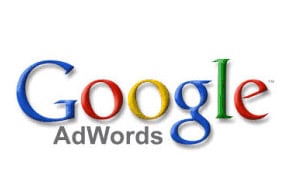
Set Up a Variety of Keyword Conditions for Google Ads
Use multiple qualifiers to reach the right audience
We’ve talked about how to brainstorm keywords for your Google Ads before, but it’s not over when you land on your final list. Sure, you can simply enter the keywords into your campaign, but this is asking for more work down the line to filter out underperforming or totally irrelevant queries. Did you know there are different ways to enter your keywords when creating or editing your Google Ads? These qualifiers can help communicate your intentions to Google, and totally remove some overhead work down the road maintaining keywords.
Broad Match Keywords
The first, and simplest, way to enter keywords is called broad match. Broad match is the default method, and if you simply type in your keywords into Google Ads then this is how they’ll be treated. Broad match keywords are just that – broad. Synonyms of every word you typed in are allowed through, and even totally different keywords or phrases that Google deems are close enough in relation. And as long as your keyword or their synonyms are part of the overall query (or even just related to the overall query sometimes), your ad has a chance to show up. Sometimes this works in your favor, so if you’re not sure exactly what people are searching or you want to explore ideas to test, then by all means do some broad matching. But in many cases, you want to get a little more specific about the keywords you’re trying to rank for.
One such way to do that, while still falling under the broad match umbrella, is to add a plus symbol (+) before a word that must be in the query for your ad to be shown. This is called a modified broad match, and will still allow for misspellings and slight variations (like “site” for “website”), but prevents matching of synonyms or related phrases that might put you in searches you don’t want to appear in. Note that in a multi-word broad match, each word can be modified individually. If you want every word to match, then you have to put a plus in front of every word. If only one word has to match, then just put a plus sign in front of that single word, and the rest will act like a default broad match.
But keep in mind, even modified broad matches still only have to be part of the overall query. If you target the keyword “web development” as a developer yourself, but somebody searches “web development jobs,” a broad match has the chance to show your ad for services here, even though you’re not trying to offer jobs (more on how to prevent this later).
Keyword Phrase Match
The next level of specificity is called phrase match. This is like the modified broad search above, except the entire phrase must show up in its entirety in order for your ad to show. You configure a phrase match keyword by wrapping the phrase in quotes. This is slightly different than simplifying modifying every word in a broad match keyword, because in a phrase match the order of the words also applies. It also doesn’t allow words in between the words of your phrase. For example, if you specified a phrase match for “local web development”, it would not trigger for “local denver web development”, but it would trigger for “denver local web development”.
Like a broad match, some slight variations are allowed through, and as long as the entire phrase shows up in a larger search query then your ads are fair game to be shown. Phrases are good for compact ideas where the order and consistency of the phrase is important. Take “website plugin development” for example – these ads would not appear for a query relating to website software development, whereas they might show for a +website +development keyword.
Exact Keyword Match
The last option, and the most specific, is the exact match specification. This defines the total search query that must be entered for your ads to show. You specify this by wrapping your query in brackets ( [denver website development] ). This doesn’t allow synonyms, related phrases, or even additional words in the query. Someone searching must type the exact (hence the name) keyword phrase into Google for your ads to appear. The only thing that comes through are very close matches – singular / plural variatons, common misspellings, and abbreviations are about the only variations you’ll see.
If you’ve got a very, very specific list of keywords you want to rank for, then exact match is for you. But in the majority of cases, we recommend against relying on exact match keywords. Throwing in a few here and there for keywords or phrases you’ve seen perform well in the past isn’t a bad idea. But having the bulk of your list be exact match keywords tends to prevent people from finding you. People have different ideas, search for different things, and use different words to get at the same point. Using exact match keywords is generally more restrictive than it’s worth.
Negative Keywords
This is all great, you may be saying, but how else can I prevent my ads showing up in unrelated queries besides relying on exact match keywords? The answer is negative keywords! Google Ads allows you to specify keywords you don’t want your ads to rank for. Not hiring? Enter “jobs”, “careers”, “salary”, and the like into your list of negative keywords. Google then knows you don’t want your ads to show up in queries involving these keywords, and you can rest assured knowing your advertising money is working to drive the right people to your website. All the same options above (broad match, modified broad match, phrase match, and exact match) all apply to your entry of negative keywords too, so you can get as broad or specific as you need.
Need some help getting your keywords entered, or coming up with a Google Ads marketing plan in general? Mr. WPress is here to help! Don’t hesitate to reach out to us for a free quote to find out how you can start reaching the right audience!



